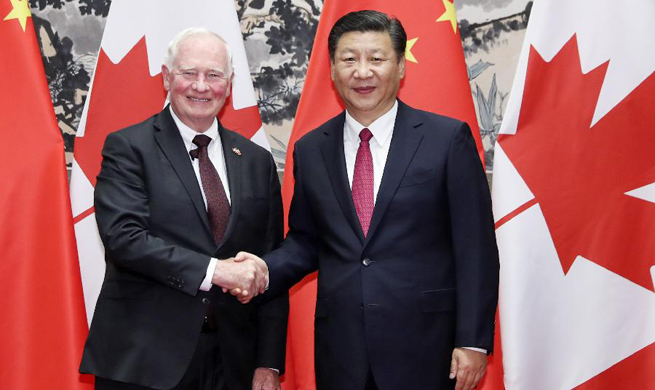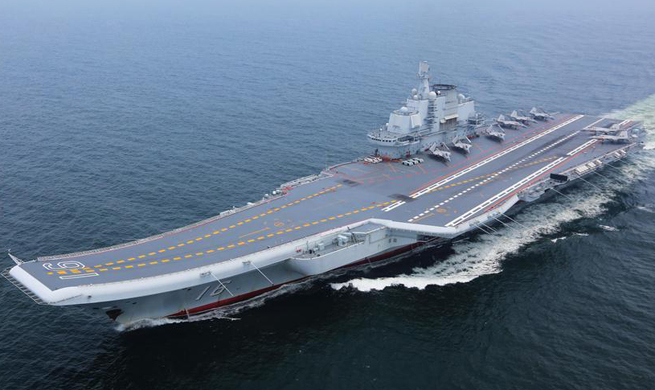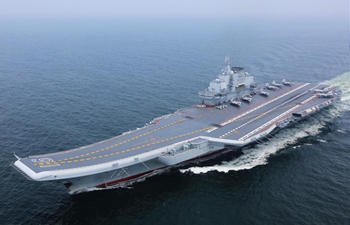HELSINKI, July 14 (Xinhua) -- In the wake of the G20 summit in Hamburg, Germany, Finnish political decision makers have expressed relief that the event has not witnessed another Yalta agreement and thus a looming danger for smaller countries has been averted in Europe.
Finnish fears about a would-be re-emergence of spheres of interest in Europe came up in unusually explixit terms in a podium discussion this week hosted by the Finnish Foreign Ministry at the Finland Forum event in Pori, western Finland.
Minister for Foreign Trade Kai Mykkanen said there had been perhaps fears about "a new Yalta where spheres of interest could be harshly distributed, but now it looks more like business as usual", Mykkanen said. He referred to the 1945 meeting of the World War Two victors in Yalta for the purpose of discussing Europe's postwar reorganization.
"There could have been more dangerous elements in the meeting," Mykkanen said, "like in January we feared that the world could end up in a trade war through the U.S.-China polarization, but that did not happen."
"So far we have experienced a lot less than what we feared," Mykkanen said.
Finnnish Foreign Minister Timo Soini assured the audience that "great powers do not agree on matters over the heads of small countries".
Soini said it was important that Russian President Vladimir Putin and U.S. President Donald Trump met, and that they talked long. "Perhaps it went fairly satisfactorily. Expectations are naturally high in those kind of first encounters and it would have been deplorable, if it had failed."
"We live in such a world that it is in the interest of small countries like Finland that the great powers talk," Soini said. He added that multilateral and rule-based international cooperation is important to small countries.
The possibility of spheres of interest has been mentioned in Finnish political discussion recently, especially with regard to the Russian geostrategic interest.
Timo Soikkanen, former professor of political history at Turku University and the official historian of the Finnish Foreign Ministry, told Xinhua on Friday that the expressions of relief should be seen in the context of geopolitical history.
"When leading western countries have wanted to reach an agreement with Russia, they have often forgotten the small countries of eastern and northeastern Europe," Soikkanen said.
Historically, Finland was believed to be the subject of a spheres of interest deal between Germany and Russia in 1939. After the World War Two, Finland was largely considered as a grey zone between the spheres of influence of the U.S. and the former Soviet Union.
Soikkanen underlined the wisdom of the post war policies of Finland. "The way of Finland after the World War Two was to deal with Russia on its own and try to make the best of the situation," he said.

















